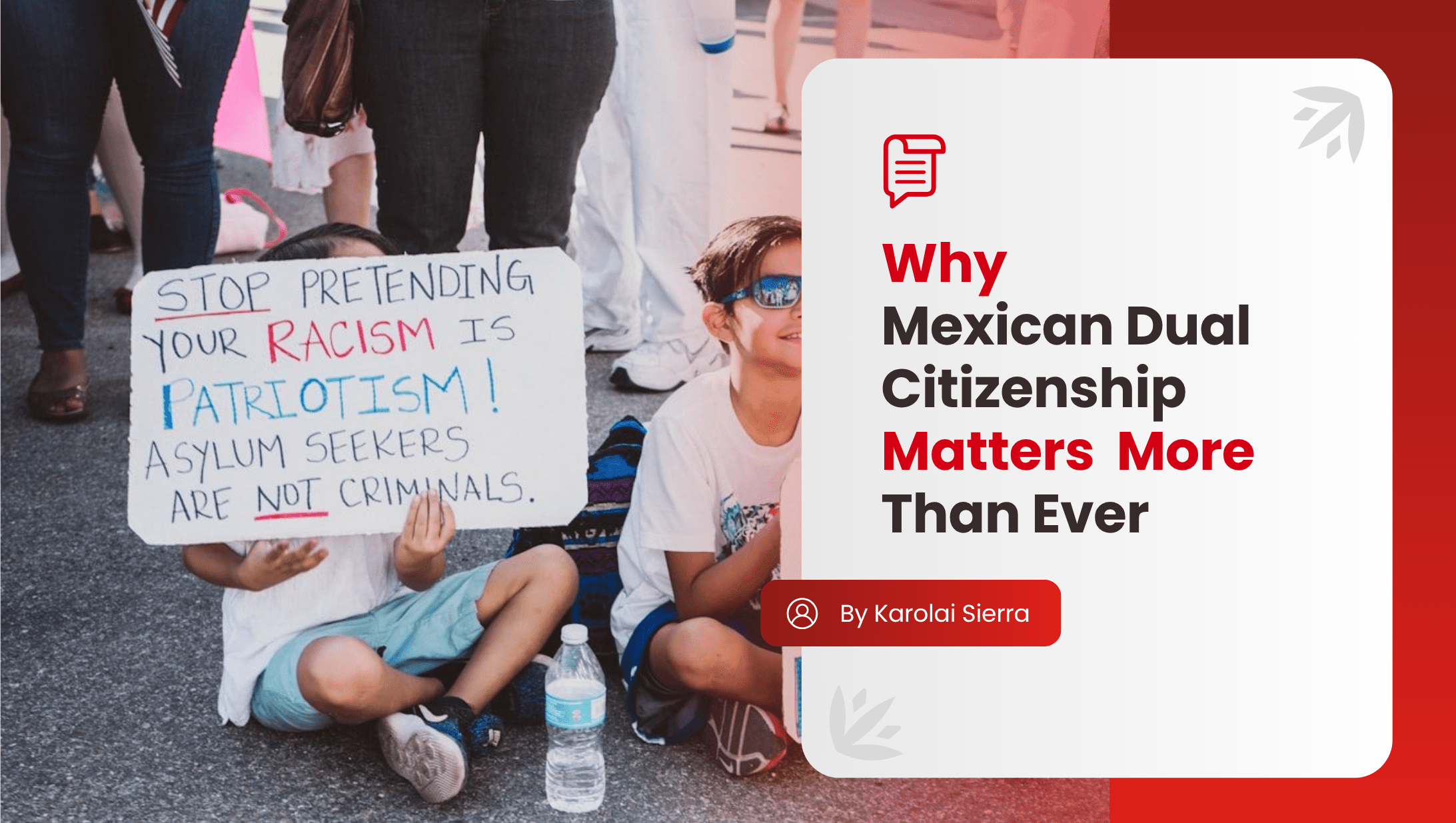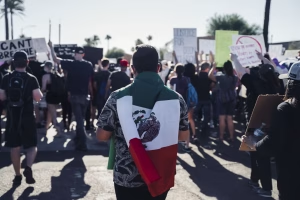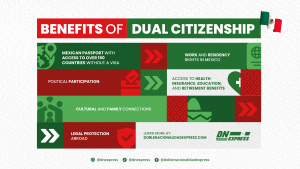
The United States is, without question, one of the most immigrant-dependent countries in the world. Yet, the narrative around immigration often swings between celebration and suspicion. Immigrants are praised for their contributions one day, and blamed for economic or social challenges the next.
In recent years, growing political polarization and misinformation have fueled uncertainty for immigrant communities, particularly Mexican-Americans. From hate speech to policy rollbacks, the atmosphere has made many rethink what it means to belong.
At Doble Nacionalidad Express (DNExpress), we believe knowledge is empowerment. That’s why today we want to clear up four common misconceptions about immigration, and explain why obtaining Mexican dual citizenship can be both a practical safeguard and a celebration of identity. This blog post has been inspired by Economic Policy Institute. Click aquí to check their article.

“Immigrants are taking our jobs.”
This is perhaps the oldest and most emotionally charged myth about immigration, and one of the least accurate.
According to the Economic Policy Institute (EPI), “people who immigrate into the United States make the country stronger economically” because they expand the workforce, boost demand for goods and services, and fill essential roles in industries that often face labor shortages (EPI, 2024).
In fact, economists consistently find that immigrants complement, rather than compete with, native-born workers. They often take positions in construction, agriculture, caregiving, and service industries, jobs that are vital but increasingly difficult to fill. This doesn’t “take” jobs away; it helps the entire economy function.
Beyond that, second-generation immigrants (including many Mexican-Americans) have some of the highest rates of entrepreneurship in the country. According to the Migration Policy Institute, “immigrants and their children play key roles in job creation, innovation, and sustaining U.S. population growth.”
So, rather than threatening the job market, immigrants create new opportunities, for themselves and others.
“Immigrants live off our taxes.”
The data says the exact opposite. Immigrants, regardless of status, are major contributors to the U.S. tax system.
The Migration Policy Institute (MPI) reports that immigrants pay billions of dollars each year in federal, state, and local taxes, including payroll taxes that help fund Social Security and Medicare, even when many are not eligible to receive those benefits (MPI, 2023).
The Economic Policy Institute adds that immigrant labor helps sustain economic growth by filling essential positions, which in turn generates taxable income and consumer spending that supports local businesses and public infrastructure.
In short: immigrants don’t drain the system, they help fund it.
“The housing market is worse because of immigrants.”
This myth often resurfaces whenever housing prices rise. But according to data from the Migration Policy Institute, the relationship between immigration and housing costs is far more nuanced.
Immigrants tend to revitalize neighborhoods, not destabilize them. Many settle in underpopulated or economically stagnant areas, helping rebuild local economies through property ownership, small businesses, and community development.
Furthermore, as immigrant populations grow, so does demand for housing construction, an industry where immigrants themselves make up a significant portion of the workforce.
As EPI notes, their contribution helps sustain one of the nation’s most critical economic sectors.
In many regions, immigrant labor has actually kept housing development costs lower than they otherwise would be, easing — not worsening — affordability pressures.
“Immigrants make the country poorer.”
Let’s look at the numbers again.
Immigrants are not just workers; they are consumers, innovators, and taxpayers. The Economic Policy Institute highlights that immigration is a “key driver of long-term U.S. growth,” as it expands the working-age population and boosts productivity.
The Migration Policy Institute similarly emphasizes that “immigrants boost overall economic growth and contribute to the nation’s fiscal health.” They not only add to GDP but also bring diversity of skills and ideas that fuel innovation and entrepreneurship, particularly in technology, science, and healthcare.
Simply put, a growing, diverse workforce keeps America competitive. Immigrants have helped the U.S. avoid the demographic decline seen in other developed countries, and that benefits everyone.
Far from making the country poorer, immigration is one of the main reasons the U.S. remains an economic powerhouse.
What This Means for Mexican-Americans
Mexican migration to the United States has deep historical and cultural roots. For generations, families have built lives on both sides of the border, working, studying, and contributing to both nations’ success stories.
But the growing wave of political tension and misinformation has made many Mexican-Americans question their sense of security.
What happens if laws change? What if visa processes tighten? What if social hostility continues to rise?
That’s where Mexican dual citizenship comes in, not as an act of rejection, but as an act of protection and pride.

Benefits of Mexican Dual Citizenship
The Power of Dual Citizenship
When you hold dual citizenship, you have full legal rights in two countries. For Mexican-Americans, this means you can:
- Live, work, and study in Mexico without a visa or time limits.
- Own property in restricted zones (such as coastal areas).
- Access healthcare and social programs in Mexico.
- Pass your nationality to your children.
- Stay connected to your heritage while maintaining your U.S. citizenship.
But dual citizenship isn’t just about opportunity , it’s about belonging. It’s a way of reclaiming cultural identity and ensuring you’re legally protected in a country that recognizes you as one of its own.
DNExpress:
“We believe that your identity should never be limited by a border. Having both citizenships allows you to move freely, connect deeply, and secure your family’s future on both sides.”

How DNExpress Helps
At Doble Nacionalidad Express (DNExpress), we simplify what can otherwise be a complex process. Our team handles every step, from verifying your eligibility to managing document translation, obtaining apostilles, and filing legal documents with Mexican authorities.
Whether your case is “perfect” (all documents match) or “non-perfect” (requiring corrections or additional steps), DNExpress ensures accuracy, transparency, and support at every stage.
In a time when immigration rhetoric can feel dehumanizing, obtaining dual citizenship is an empowering act. It’s a statement that says: I belong in both worlds, and I contribute to both.




